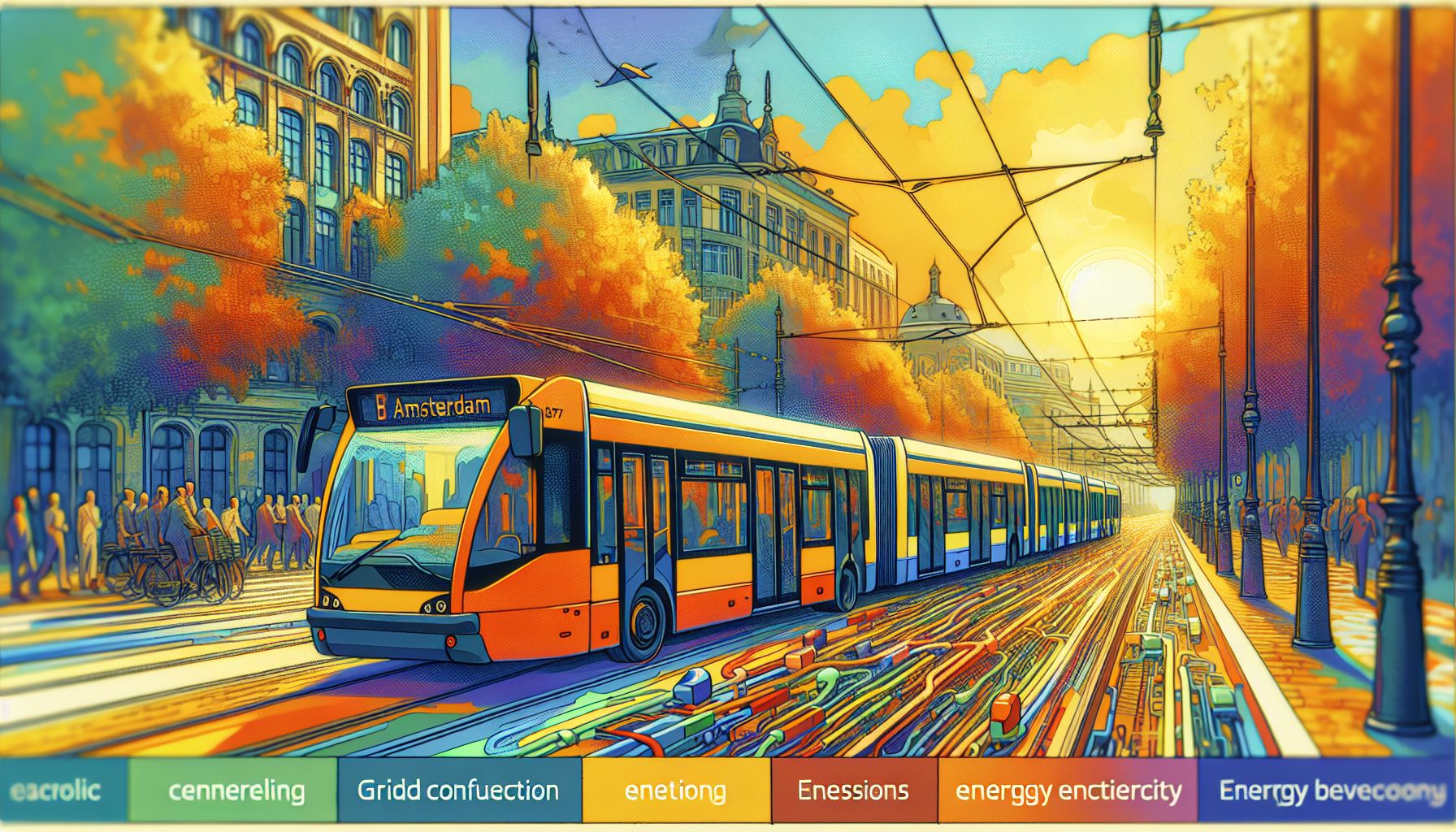Amsterdam pioneers sustainable transit by charging buses with metro line energy

Amsterdam’s electric buses could soon harness energy from metro lines, reducing grid congestion and emissions while improving energy efficiency.
Harnessing Metro Braking Energy for Electric Buses
In a progressive move towards sustainable urban mobility, a collaborative research project between Delft University of Technology (TU Delft), the Amsterdam Institute for Advanced Metropolitan Solutions (AMS Institute), and the municipal public transportation operator GVB has found a novel use for the Amsterdam metro network’s energy. The study, which ran from September 2022 to March 2024, suggests that electric buses can be charged using the braking energy harvested from the city’s metro lines. This innovative solution could significantly reduce grid congestion, which is a growing issue in the Netherlands, and optimize energy costs for the city’s transportation system.
A Feasible and Profitable Approach
The research focused on the Amsterdam Noord metro station and concluded that integrating bus chargers into the metro grid could capture up to 17MWh per day of otherwise wasted braking energy. This approach presents a profitable opportunity, as over 75% of this braking energy currently goes unused. By tapping into this surplus, Amsterdam could see a reduction in greenhouse gas emissions, a decrease in energy costs, and an enhancement in the efficiency of its public transit without hindering metro operations.
Pilot Testing and Further Research
Encouraged by the positive outcomes, the AMS Institute and GVB are now considering establishing a pilot test site at Station Noord for direct bus charging. This initiative is a part of Amsterdam’s broader commitment to exploring innovative solutions that address urban transport challenges. The project’s success could lead to further research into energy storage systems and the integration of additional green energy sources, such as solar panels, into the metro grid.
Beyond Amsterdam: A Blueprint for Sustainable Urban Transport
Amsterdam’s pioneering project could set a precedent for cities worldwide grappling with similar energy and sustainability challenges. The collaborative effort between academia, industry, and government entities exemplifies how strategic partnerships can lead to breakthroughs in urban sustainability. With a greater emphasis on multi-modal, eco-friendly transport solutions, this Dutch endeavor may inspire a global shift towards greener, smarter mobility.
Bronnen
- innovationorigins.com
- www.railtech.com
- www.ams-institute.org
- www.citylogistics.info
- www.citylogistics.info
- www.alstom.com

